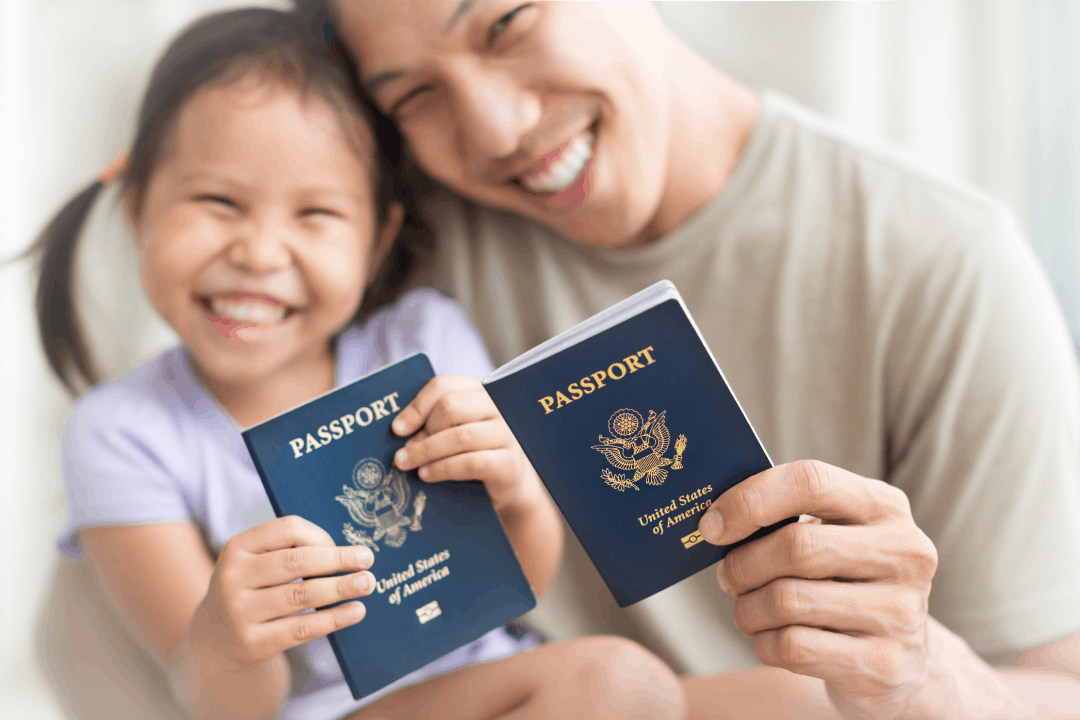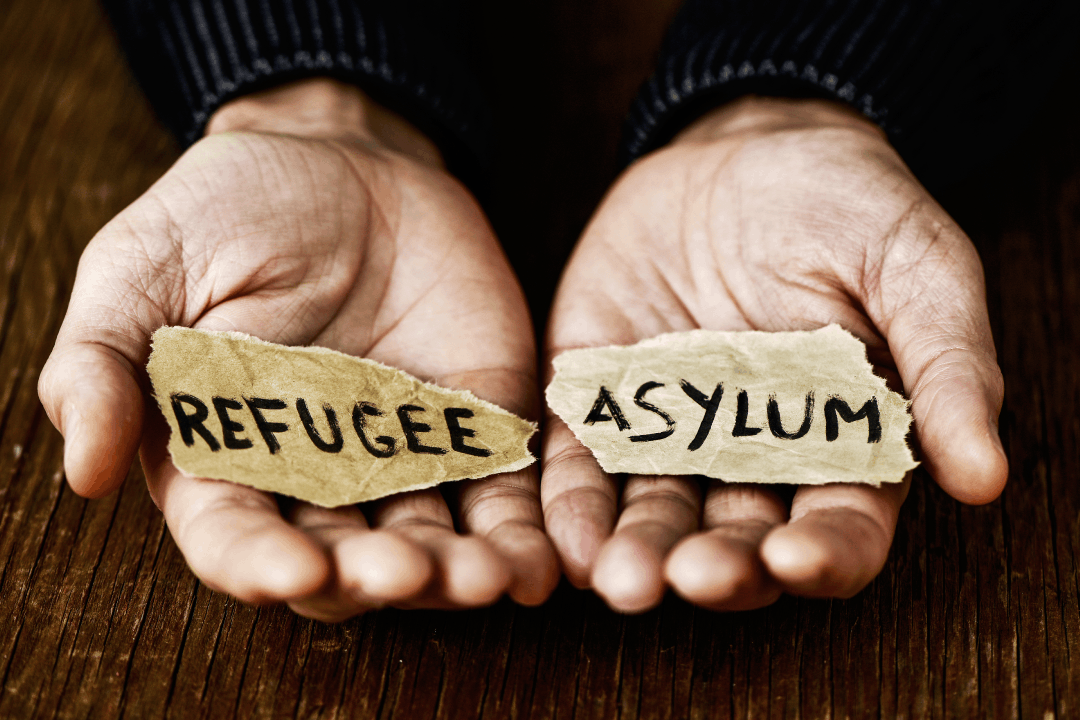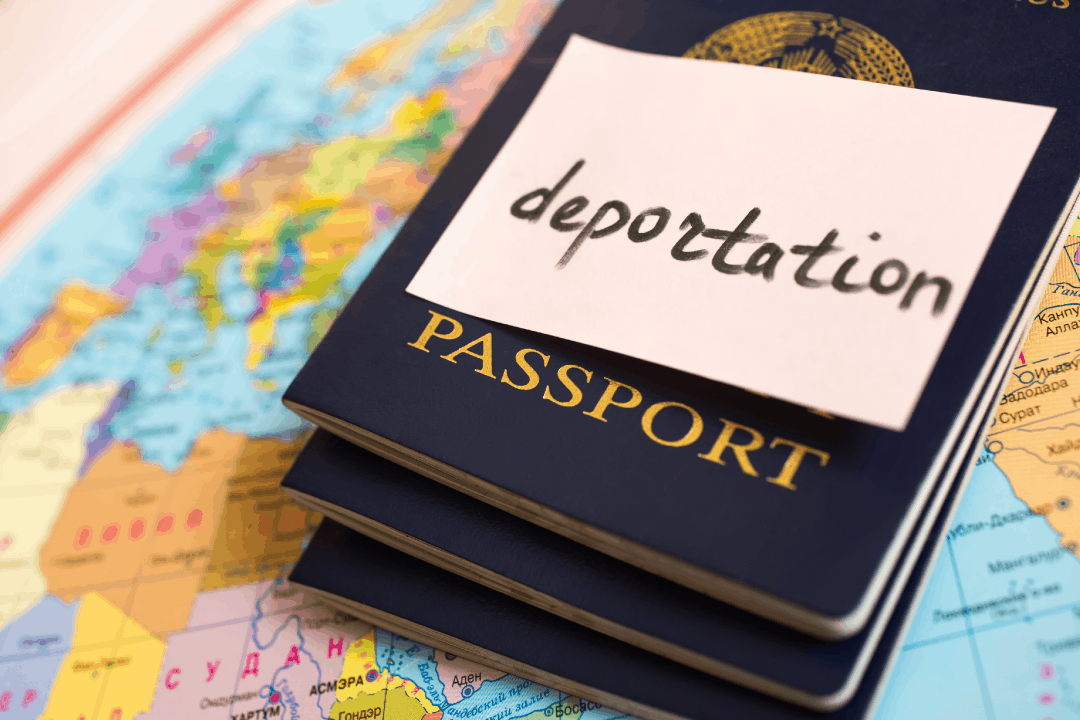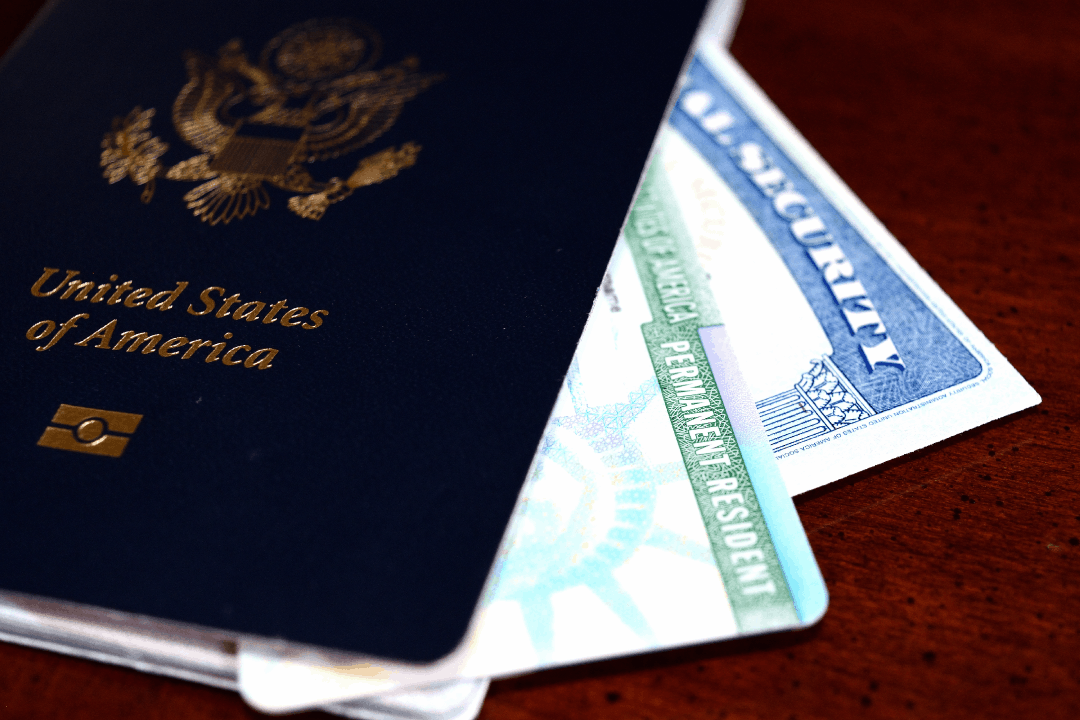- Immigrant Visas
 An immigrant visa is generally granted to Migrants seeking to establish permanent residence in the United States. Immigrant visas may derive from family and/or employment sponsorships as well as other limited special categories that are subject to strict eligibility.
An immigrant visa is generally granted to Migrants seeking to establish permanent residence in the United States. Immigrant visas may derive from family and/or employment sponsorships as well as other limited special categories that are subject to strict eligibility. - Nonimmigrant Visas
 A non-immigrant visa is generally granted to foreign nationals seeking temporary travel to the United States during a specific period. There are numerous types of nonimmigrant visas to satisfy the purpose of travel.
A non-immigrant visa is generally granted to foreign nationals seeking temporary travel to the United States during a specific period. There are numerous types of nonimmigrant visas to satisfy the purpose of travel. - Special Status
 Special Status is granted on a base-by-base category eligibility in accordance with laws and regulations established by the United States. Special Statuses may render the Migrant temporary stay, temporary protection from deportation, and work authorization.
Special Status is granted on a base-by-base category eligibility in accordance with laws and regulations established by the United States. Special Statuses may render the Migrant temporary stay, temporary protection from deportation, and work authorization.
- Family-Based Petition via MarriageA U.S. citizen or a lawful permanent resident, who marries a foreign national and is 18 years or older, may start the process of seeking an immigrant visa for his or her spouse by filing a family-based petition. The immigrant visa process is generally composed of a multi-application, multi-step and/or multi-agency process depending on whether the foreign national will process an immigrant visa in the U.S. or abroad at a U.S. Embassy or Consulate.
 Family-Based Petition via MarriageA U.S. citizen or a lawful permanent resident, who marries a foreign national and is 18 years or older, may start the process of seeking an immigrant visa for his or her spouse by filing a family-based petition. The immigrant visa process is generally composed of a multi-application, multi-step and/or multi-agency process depending on whether the foreign national will process an immigrant visa in the U.S. or abroad at a U.S. Embassy or Consulate.
Family-Based Petition via MarriageA U.S. citizen or a lawful permanent resident, who marries a foreign national and is 18 years or older, may start the process of seeking an immigrant visa for his or her spouse by filing a family-based petition. The immigrant visa process is generally composed of a multi-application, multi-step and/or multi-agency process depending on whether the foreign national will process an immigrant visa in the U.S. or abroad at a U.S. Embassy or Consulate. - Family-Based Petition via ParentA U.S. citizen or a lawful permanent resident parent of a minor child, who is unmarried and under 21 years old, may start the process of seeking an immigrant visa for his or her minor child by filing a family-based petition. The immigrant visa process is generally composed of a multi-application, multi-step and/or multi-agency process depending on whether the foreign national will process an immigrant visa in the U.S. or abroad at a U.S. Embassy or Consulate.
 Family-Based Petition via ParentA U.S. citizen or a lawful permanent resident parent of a minor child, who is unmarried and under 21 years old, may start the process of seeking an immigrant visa for his or her minor child by filing a family-based petition. The immigrant visa process is generally composed of a multi-application, multi-step and/or multi-agency process depending on whether the foreign national will process an immigrant visa in the U.S. or abroad at a U.S. Embassy or Consulate.
Family-Based Petition via ParentA U.S. citizen or a lawful permanent resident parent of a minor child, who is unmarried and under 21 years old, may start the process of seeking an immigrant visa for his or her minor child by filing a family-based petition. The immigrant visa process is generally composed of a multi-application, multi-step and/or multi-agency process depending on whether the foreign national will process an immigrant visa in the U.S. or abroad at a U.S. Embassy or Consulate. - Family-Based Petition via Parent (Adult)A U.S. citizen or lawful permanent resident parent may start the process of seeking an immigrant visa for an unmarried adult son or daughter, who is 21 years or older, by filing a family-based petition. However, only a U.S. citizen parent may petition for any married son or daughter. The immigrant visa process is generally composed of a multi-application, multi-step and/or multi-agency process depending on whether the foreign national will process an immigrant visa in the U.S. or abroad at a U.S. Embassy or Consulate.
 Family-Based Petition via Parent (Adult)A U.S. citizen or lawful permanent resident parent may start the process of seeking an immigrant visa for an unmarried adult son or daughter, who is 21 years or older, by filing a family-based petition. However, only a U.S. citizen parent may petition for any married son or daughter. The immigrant visa process is generally composed of a multi-application, multi-step and/or multi-agency process depending on whether the foreign national will process an immigrant visa in the U.S. or abroad at a U.S. Embassy or Consulate.
Family-Based Petition via Parent (Adult)A U.S. citizen or lawful permanent resident parent may start the process of seeking an immigrant visa for an unmarried adult son or daughter, who is 21 years or older, by filing a family-based petition. However, only a U.S. citizen parent may petition for any married son or daughter. The immigrant visa process is generally composed of a multi-application, multi-step and/or multi-agency process depending on whether the foreign national will process an immigrant visa in the U.S. or abroad at a U.S. Embassy or Consulate. - Family-Based Petition via Son or DaughterOnly a U.S. citizen son or daughter, who is 21 years or older, may start the process of seeking an immigrant visa for a parent by filing a family-based petition. The immigrant visa process is generally composed of a multi-application, multi-step and/or multi-agency process depending on whether the foreign national will process an immigrant visa in the U.S. or abroad at a U.S. Embassy or Consulate.
 Family-Based Petition via Son or DaughterOnly a U.S. citizen son or daughter, who is 21 years or older, may start the process of seeking an immigrant visa for a parent by filing a family-based petition. The immigrant visa process is generally composed of a multi-application, multi-step and/or multi-agency process depending on whether the foreign national will process an immigrant visa in the U.S. or abroad at a U.S. Embassy or Consulate.
Family-Based Petition via Son or DaughterOnly a U.S. citizen son or daughter, who is 21 years or older, may start the process of seeking an immigrant visa for a parent by filing a family-based petition. The immigrant visa process is generally composed of a multi-application, multi-step and/or multi-agency process depending on whether the foreign national will process an immigrant visa in the U.S. or abroad at a U.S. Embassy or Consulate. - Family-Based Petition via SiblingA U.S. citizen, who is 21 years or older, may start the process of seeking an immigrant visa for a brother or sister of any age by filing a family-based petition. The immigrant visa process is generally composed of a multi-application, multi-step and/or multi-agency process depending on whether the foreign national will process an immigrant visa in the U.S. or abroad at a U.S. Embassy or Consulate.Family-Based Petition via SiblingA U.S. citizen, who is 21 years or older, may start the process of seeking an immigrant visa for a brother or sister of any age by filing a family-based petition. The immigrant visa process is generally composed of a multi-application, multi-step and/or multi-agency process depending on whether the foreign national will process an immigrant visa in the U.S. or abroad at a U.S. Embassy or Consulate.
- Admission-Based Petition via Diversity VisasA Diversity Visa (DV) Program also known as the ‘green card lottery’ permits individuals to apply for a randomized selection process to receive a diversity visa that would grant them lawful permanent residence upon arrival in the U.S. The program has offered up to 55,000 diversity visas each fiscal year. The Diversity Visa Program electronic entry system is typically open to applicants on a yearly basis from the beginning of October to the beginning of November.Admission-Based Petition via Diversity VisasA Diversity Visa (DV) Program also known as the ‘green card lottery’ permits individuals to apply for a randomized selection process to receive a diversity visa that would grant them lawful permanent residence upon arrival in the U.S. The program has offered up to 55,000 diversity visas each fiscal year. The Diversity Visa Program electronic entry system is typically open to applicants on a yearly basis from the beginning of October to the beginning of November.
- Petitions via Fiancé(e)A U.S. citizen, who is 18 years or older, may start the process of seeking a nonimmigrant visa for a fiancé(e), by filing a petition for a fiancé(e). An approved fiancé(e) visa will allow a fiancé(e) admission to the U.S. for the purpose of marrying the U.S. citizen petitioner within 90 days of admission to the U.S. The non-immigrant visa process is generally composed of a multi-application, multi-step and/or multi-agency process.
 Petitions via Fiancé(e)A U.S. citizen, who is 18 years or older, may start the process of seeking a nonimmigrant visa for a fiancé(e), by filing a petition for a fiancé(e). An approved fiancé(e) visa will allow a fiancé(e) admission to the U.S. for the purpose of marrying the U.S. citizen petitioner within 90 days of admission to the U.S. The non-immigrant visa process is generally composed of a multi-application, multi-step and/or multi-agency process.
Petitions via Fiancé(e)A U.S. citizen, who is 18 years or older, may start the process of seeking a nonimmigrant visa for a fiancé(e), by filing a petition for a fiancé(e). An approved fiancé(e) visa will allow a fiancé(e) admission to the U.S. for the purpose of marrying the U.S. citizen petitioner within 90 days of admission to the U.S. The non-immigrant visa process is generally composed of a multi-application, multi-step and/or multi-agency process. - Petitions via A Specialty OccupationA U.S. employer may file a petition for a nonimmigrant worker that seeks to come to the U.S. to work with an H-1B visa as a temporary professional worker in a ‘specialty occupation’. The nonimmigrant worker must meet higher educational requirements, which are typical for the specialty occupation position he or she will fill. The nonimmigrant visa process may be composed of a multi-step and/or multi-agency process depending on whether the foreign national will process a nonimmigrant visa in the U.S. or abroad.
 Petitions via A Specialty OccupationA U.S. employer may file a petition for a nonimmigrant worker that seeks to come to the U.S. to work with an H-1B visa as a temporary professional worker in a ‘specialty occupation’. The nonimmigrant worker must meet higher educational requirements, which are typical for the specialty occupation position he or she will fill. The nonimmigrant visa process may be composed of a multi-step and/or multi-agency process depending on whether the foreign national will process a nonimmigrant visa in the U.S. or abroad.
Petitions via A Specialty OccupationA U.S. employer may file a petition for a nonimmigrant worker that seeks to come to the U.S. to work with an H-1B visa as a temporary professional worker in a ‘specialty occupation’. The nonimmigrant worker must meet higher educational requirements, which are typical for the specialty occupation position he or she will fill. The nonimmigrant visa process may be composed of a multi-step and/or multi-agency process depending on whether the foreign national will process a nonimmigrant visa in the U.S. or abroad. - Petitions via A Religious OccupationA qualifying religious organization or non-profit organization that is affiliated with a religious organization may file a petition for a nonimmigrant worker that seeks to temporarily work in the U.S. as a minister or in a religious vocation or occupation. The nonimmigrant religious worker must work an average of at least 20 hours per week and have been a member of a religious denomination with a qualifying religious organization in the U.S. for the two-year period preceding the date a petition is filed.Petitions via A Religious OccupationA qualifying religious organization or non-profit organization that is affiliated with a religious organization may file a petition for a nonimmigrant worker that seeks to temporarily work in the U.S. as a minister or in a religious vocation or occupation. The nonimmigrant religious worker must work an average of at least 20 hours per week and have been a member of a religious denomination with a qualifying religious organization in the U.S. for the two-year period preceding the date a petition is filed.
- Petitions via A Victim of Criminal ActivityA foreign national that is the victim of a qualifying criminal activity that occurs while in the U.S. may seek “U” nonimmigrant status. The approval of a U visa authorizes an individual to remain in the U.S. and potential pursue adjustment of status after three (3) years of physical presence in the U.S. Additionally, derivative U visa status may be granted to qualifying family members. The nonimmigrant visa process generally requires certification by a certifying law enforcement agency where the criminal activity occurred.Petitions via A Victim of Criminal ActivityA foreign national that is the victim of a qualifying criminal activity that occurs while in the U.S. may seek “U” nonimmigrant status. The approval of a U visa authorizes an individual to remain in the U.S. and potential pursue adjustment of status after three (3) years of physical presence in the U.S. Additionally, derivative U visa status may be granted to qualifying family members. The nonimmigrant visa process generally requires certification by a certifying law enforcement agency where the criminal activity occurred.
- Petitions via A Student VisaAn individual who wishes to temporarily enter the U.S. for the purpose of studying, may start the process of seeking a nonimmigrant student visa abroad at a U.S. Embassy or Consulate. Generally, the individual’s course of study and the attending school will determine the corresponding visa, either an F (academic) visa or M (vocational) visa. However, interested individuals must first comply with acceptance and enrollment requirements to meet initial eligibility for a nonimmigrant student visa.Petitions via A Student VisaAn individual who wishes to temporarily enter the U.S. for the purpose of studying, may start the process of seeking a nonimmigrant student visa abroad at a U.S. Embassy or Consulate. Generally, the individual’s course of study and the attending school will determine the corresponding visa, either an F (academic) visa or M (vocational) visa. However, interested individuals must first comply with acceptance and enrollment requirements to meet initial eligibility for a nonimmigrant student visa.
- Deferred Action for Childhood Arrivals (DACA)DACA is an exercise of prosecutorial discretion that defers any removal action against individuals that came to the U.S. as children and meet the specific requirements for the DACA program. It is a two-year program that is subject to renewal by the federal government. Generally, each applicant must demonstrate that he/she came to the U.S. before attaining 16 years of age and was still under the age of 31 as well as unlawfully present on June 15, 2012. Each applicant must also meet educational, continuous residence and strict criminal history requirements.
 Deferred Action for Childhood Arrivals (DACA)DACA is an exercise of prosecutorial discretion that defers any removal action against individuals that came to the U.S. as children and meet the specific requirements for the DACA program. It is a two-year program that is subject to renewal by the federal government. Generally, each applicant must demonstrate that he/she came to the U.S. before attaining 16 years of age and was still under the age of 31 as well as unlawfully present on June 15, 2012. Each applicant must also meet educational, continuous residence and strict criminal history requirements.
Deferred Action for Childhood Arrivals (DACA)DACA is an exercise of prosecutorial discretion that defers any removal action against individuals that came to the U.S. as children and meet the specific requirements for the DACA program. It is a two-year program that is subject to renewal by the federal government. Generally, each applicant must demonstrate that he/she came to the U.S. before attaining 16 years of age and was still under the age of 31 as well as unlawfully present on June 15, 2012. Each applicant must also meet educational, continuous residence and strict criminal history requirements. - Application for Asylum and Withholding of RemovalAsylum is a protection or form of relief from removal to a country, where a foreign national has suffered past persecution or who has a well-founded fear of future persecution on account of race, religion, nationality, political opinion, or membership in a particular social group. To qualify for asylum, an applicant must file an application within 1 year of entering the U.S. If an applicant does not qualify for asylum status, the applicant may still be eligible for withholding of removal or relief under the Convention Against Torture (CAT).
 Application for Asylum and Withholding of RemovalAsylum is a protection or form of relief from removal to a country, where a foreign national has suffered past persecution or who has a well-founded fear of future persecution on account of race, religion, nationality, political opinion, or membership in a particular social group. To qualify for asylum, an applicant must file an application within 1 year of entering the U.S. If an applicant does not qualify for asylum status, the applicant may still be eligible for withholding of removal or relief under the Convention Against Torture (CAT).
Application for Asylum and Withholding of RemovalAsylum is a protection or form of relief from removal to a country, where a foreign national has suffered past persecution or who has a well-founded fear of future persecution on account of race, religion, nationality, political opinion, or membership in a particular social group. To qualify for asylum, an applicant must file an application within 1 year of entering the U.S. If an applicant does not qualify for asylum status, the applicant may still be eligible for withholding of removal or relief under the Convention Against Torture (CAT). - Temporary Protected Status (TPS)The U.S. Congress created TPS in the Immigration Act of 1990. The Secretary of the Department of Homeland Security has the discretion to decide what country merits a designation of TPS. TPS was enacted to provide humanitarian relief to nationals of countries suffering from ongoing armed conflicts, unrest or environmental disasters. A TPS designation may be granted for 6, 12 or 18 months at a time to a country. An individual granted TPS receives a stay of deportation, protection from removal to his or her country and/or temporary authorization to work in the U.S.
 Temporary Protected Status (TPS)The U.S. Congress created TPS in the Immigration Act of 1990. The Secretary of the Department of Homeland Security has the discretion to decide what country merits a designation of TPS. TPS was enacted to provide humanitarian relief to nationals of countries suffering from ongoing armed conflicts, unrest or environmental disasters. A TPS designation may be granted for 6, 12 or 18 months at a time to a country. An individual granted TPS receives a stay of deportation, protection from removal to his or her country and/or temporary authorization to work in the U.S.
Temporary Protected Status (TPS)The U.S. Congress created TPS in the Immigration Act of 1990. The Secretary of the Department of Homeland Security has the discretion to decide what country merits a designation of TPS. TPS was enacted to provide humanitarian relief to nationals of countries suffering from ongoing armed conflicts, unrest or environmental disasters. A TPS designation may be granted for 6, 12 or 18 months at a time to a country. An individual granted TPS receives a stay of deportation, protection from removal to his or her country and/or temporary authorization to work in the U.S. - Nicaraguan Adjustment and Central American Relief Act (NACARA)NACARA was intended to create a legal pathway and application process to lawful permanent residency for thousands of Salvadorans, Guatemalans, Cubans, Nicaraguans and Nationals of Former Soviet-Bloc Countries. While NACARA may no longer be widely available or common, it is still considered as a form of relief for certain eligible nationals. Additionally, sons and daughters of principal beneficiaries of NACARA may also still qualify for benefits if under the age of 21 years when at least one parent was granted lawful permanent resident status under NACARA.Nicaraguan Adjustment and Central American Relief Act (NACARA)NACARA was intended to create a legal pathway and application process to lawful permanent residency for thousands of Salvadorans, Guatemalans, Cubans, Nicaraguans and Nationals of Former Soviet-Bloc Countries. While NACARA may no longer be widely available or common, it is still considered as a form of relief for certain eligible nationals. Additionally, sons and daughters of principal beneficiaries of NACARA may also still qualify for benefits if under the age of 21 years when at least one parent was granted lawful permanent resident status under NACARA.
- Special Immigrant Juvenile Status (SIJS) – CustodySIJS was enacted to provide humanitarian protection for children who have been abused, neglected, or abandoned by one or both parents prior to his or her arrival in the U.S. To be eligible for SIJS via custody, a state juvenile court must place the child in the custody of a parent and determine that reunification with the other parent is not possible. A person granted SIJS is eligible to apply for adjustment of status (green card) in the U.S., subject to limitations on visa availability.
 Special Immigrant Juvenile Status (SIJS) – CustodySIJS was enacted to provide humanitarian protection for children who have been abused, neglected, or abandoned by one or both parents prior to his or her arrival in the U.S. To be eligible for SIJS via custody, a state juvenile court must place the child in the custody of a parent and determine that reunification with the other parent is not possible. A person granted SIJS is eligible to apply for adjustment of status (green card) in the U.S., subject to limitations on visa availability.
Special Immigrant Juvenile Status (SIJS) – CustodySIJS was enacted to provide humanitarian protection for children who have been abused, neglected, or abandoned by one or both parents prior to his or her arrival in the U.S. To be eligible for SIJS via custody, a state juvenile court must place the child in the custody of a parent and determine that reunification with the other parent is not possible. A person granted SIJS is eligible to apply for adjustment of status (green card) in the U.S., subject to limitations on visa availability. - Special Immigrant Juvenile Status (SIJS) – GuardianshipSIJS was enacted to provide humanitarian protection for children who have been abused, neglected, or abandoned by one or both parents prior to his or her arrival in the United States. To be eligible for SIJS via guardianship, a state juvenile court must place the child under the guardianship of a family member or other caregiver and determine that reunification with one or both parents is not possible. A person granted SIJS is eligible to apply for adjustment of status (green card) in the U.S., subject to limitations on visa availability.Special Immigrant Juvenile Status (SIJS) – GuardianshipSIJS was enacted to provide humanitarian protection for children who have been abused, neglected, or abandoned by one or both parents prior to his or her arrival in the United States. To be eligible for SIJS via guardianship, a state juvenile court must place the child under the guardianship of a family member or other caregiver and determine that reunification with one or both parents is not possible. A person granted SIJS is eligible to apply for adjustment of status (green card) in the U.S., subject to limitations on visa availability.







